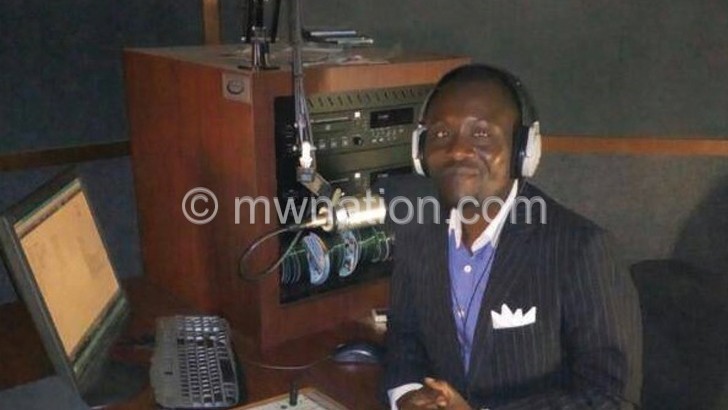Harnessing the power of radio
Stop at Chambwe Village, about 10 kilometres west of Lilongwe and you will likely meet Davie Katenga Katsabola, a charming young man who is using radio for rural transformation.
Stories from his village of two famous radio broadcasters—Kafumbi Njewa and the late Davis Mussa—inspire his passion for radio.

Community Radio Station
Lying on a gullied plain, Chambwe has also produced other famous media personalities, including Jolly Kalero, Norman Fulatira, Innocent Kumchedwa and Mayamiko Kambewa who inspire the youthful broadcaster and his peers in the area.
“We proudly call Chambwe a media village because it is home to these prominent media personalities. Through these role models, I have come to realise that radio broadcasting is a calling. It’s about passion. Serving the common good is in itself enriching and rewarding to me,” he adds.
At 29, Katsabola is currently studying for a degree in mass communication.
To him, radio is the most powerful tool of mass communication to stimulate communities to find solutions to their everyday problems.
Growing up, Katsabola wanted a platform that would give him access to rural and underprivileged people with untapped potential to change their own destiny.
In pursuit of his childhood dream, he joined the church-owned Maziko Community Radio in 2012 as a producer and rose to the position of head of programmes in 2014.
In his six years at Maziko, Katsabola has successfully produced radio programmes Tamva Kantchentche (Speculations), Chiphunzitso (Bible Doctrine) and Zili Pati za Mphamvu ku Anthu? (Decentralisation).
Through these community-driven programmes, he connects with rural communities and encourages them to air their concerns while taking part in identifying possible solutions.
As Katsabola has discovered, community radio stations constitute an indispensable vehicle through which local communities can express their opinions on issues of concern and spur positive change.
Realising this transformative power of community broadcasters, the Local Government Accountability and Performance (Lgap) project is working with Maziko Community Radio and six other community radios to increase citizen engagement and oversight in democratic processes.
The project, with support from United States Agency for International Development (USAid ) and Britain’s Department for International Development (DfID), is working with Ministry of Local Government and Rural Development to enhance the performance of Mzimba, Kasungu, Lilongwe, Balaka, Machinga, Zomba, Blantyre and Mulanje district councils.
The project also seeks to increase citizen engagement and oversight to ensure a more responsive and accountable local government while promoting policy and legal reforms in decentralisation.
Under the banner of Zili Pati Za Mphamvu Ku Anthu? (Decentralisation) programme, Lgap is empowering seven community radio stations that were grappling with financial constraints and under-skilled staff.
The community broadcasters include Mzimba Community Radio, Tigabane in Mzuzu, Maziko in Lilongwe, Radio Maria in Mangochi, Yoneco FM in Zomba, MIJ FM in Blantyre and Mzati in Mulanje.
To further widen its reach, the project also roped in both public and private national radios and television stations, targeting opinion makers whose influence matter the most in policy-making.
To deepen accountability and transparency in councils, they have aired over 100 Zili Pati Za Mphamvu Ku Anthu? programmes involving citizens, councillors, legislators, council officials, central government officials, civil society voices, independent experts and vendors.
The programmes aim at finding solutions to end poverty, deprivation, exclusion and inequalities without “leaving anyone behind”, the mantra of the United Nations’ 2030 Agenda for Sustainable Development.
However, knowledge gaps persist despite efforts by numerous organisations providing civic education on decentralisation to rural populations.
“Although other people are doing good work in terms of civic education, we still need more players to fill in the knowledge gaps. This is where community radios can come in to play their watchdog role and provide communities with space for dialogue with their representatives,” says Katsabola.
But there is a glimmer of hope.
Elsewhere, communities are increasingly standing up for their right to demand quality service delivery, even with limited knowledge.
“Through my work with the radio, I have heard stories of rural people who have taken action against injustice after listening to radio programmes we have aired,” he explains.
Still, people like Katsabola need the support of everyone to fulfills their goal of empowering rural communities to demand for accountability and transparency in the democratic process. n





